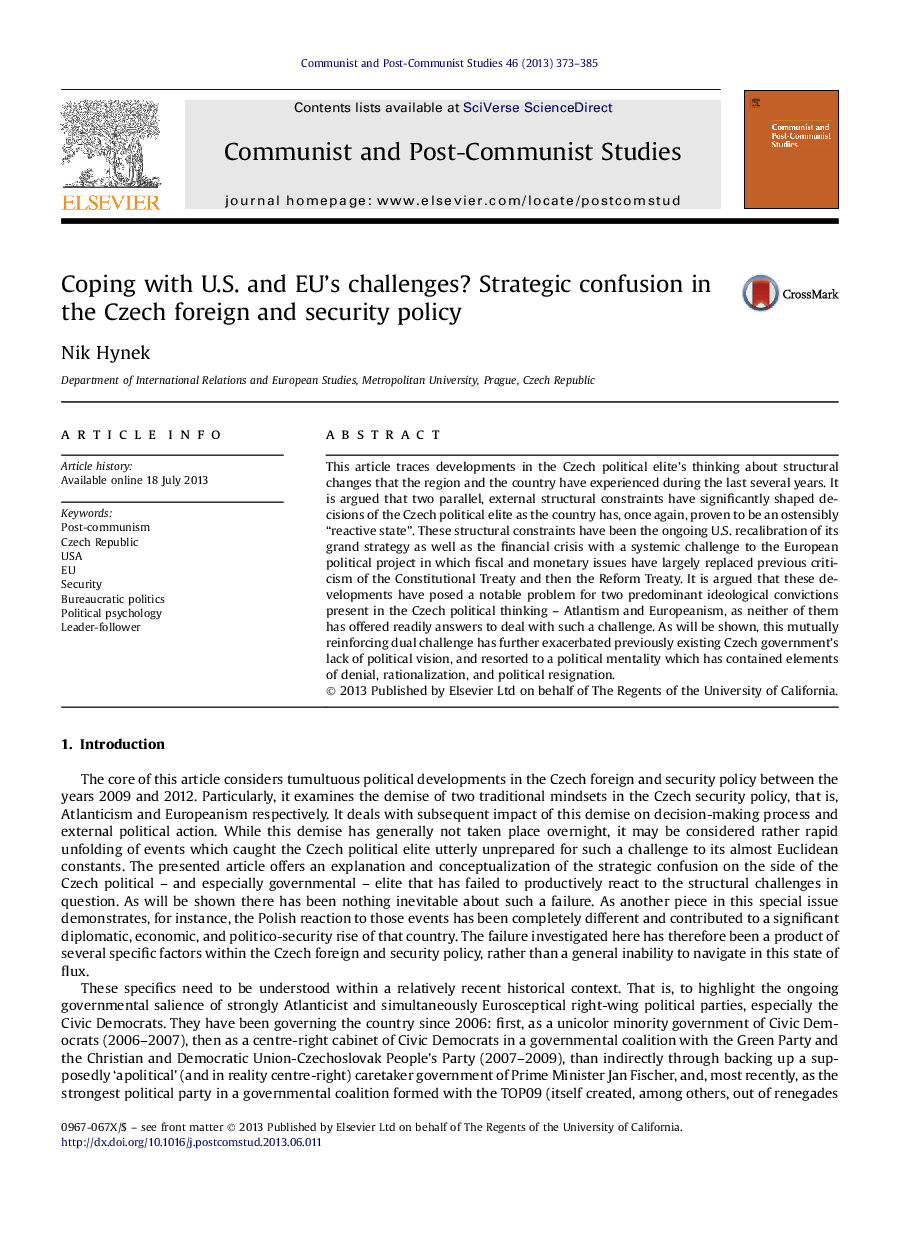| Article ID | Journal | Published Year | Pages | File Type |
|---|---|---|---|---|
| 1046486 | Communist and Post-Communist Studies | 2013 | 13 Pages |
This article traces developments in the Czech political elite's thinking about structural changes that the region and the country have experienced during the last several years. It is argued that two parallel, external structural constraints have significantly shaped decisions of the Czech political elite as the country has, once again, proven to be an ostensibly “reactive state”. These structural constraints have been the ongoing U.S. recalibration of its grand strategy as well as the financial crisis with a systemic challenge to the European political project in which fiscal and monetary issues have largely replaced previous criticism of the Constitutional Treaty and then the Reform Treaty. It is argued that these developments have posed a notable problem for two predominant ideological convictions present in the Czech political thinking – Atlantism and Europeanism, as neither of them has offered readily answers to deal with such a challenge. As will be shown, this mutually reinforcing dual challenge has further exacerbated previously existing Czech government's lack of political vision, and resorted to a political mentality which has contained elements of denial, rationalization, and political resignation.
